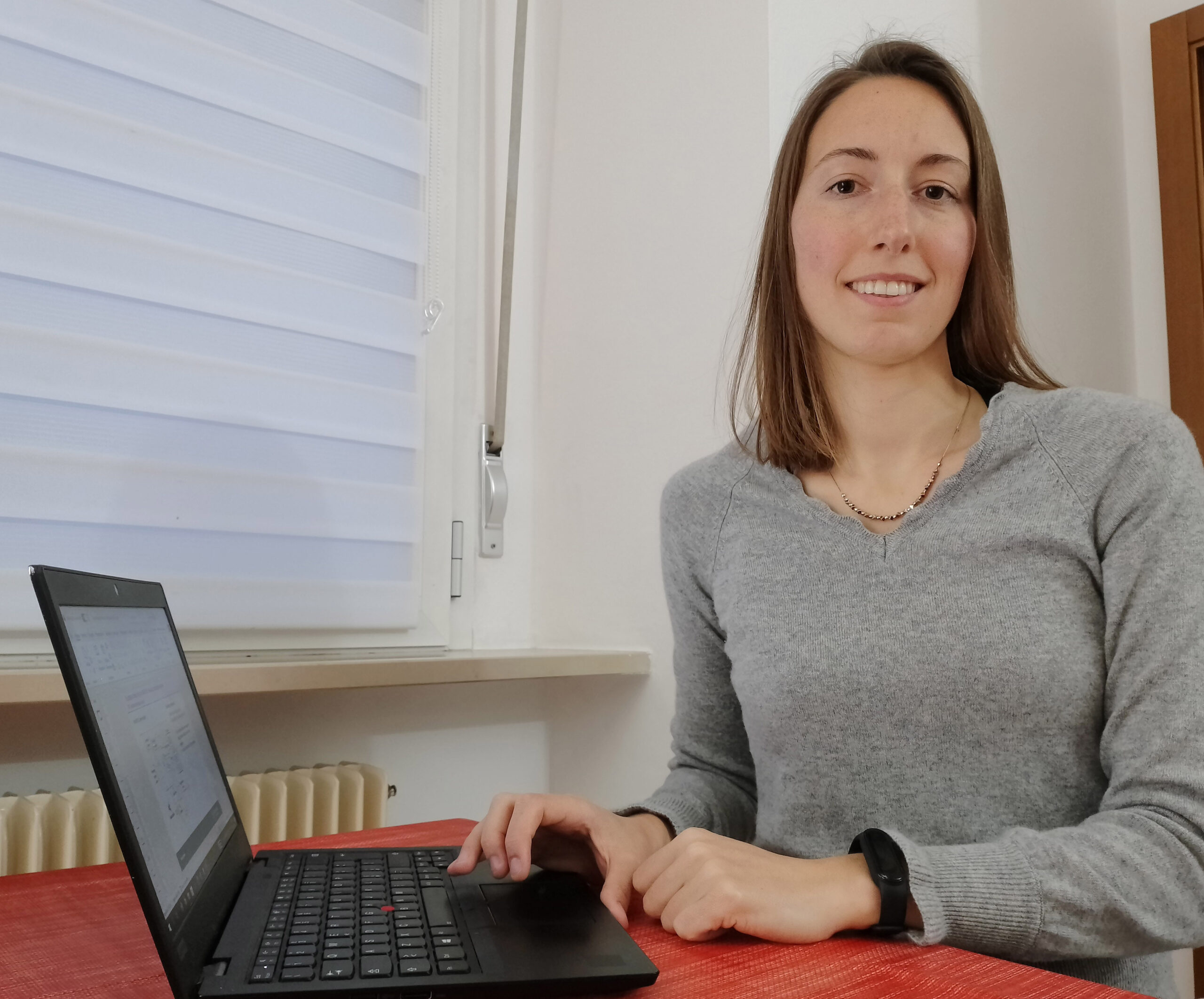Hydrogen systems for electric grid flexibility
Elena Crespi
- Thesis title: Electrical grid balancing with fast-ramping Fuel Cell and electrolysis systems: analysis, modelling and optimization
- PhD Tesi Supervisors: Stefano Campanari, Giulio Guandalini
- Phd: STEN, 34° cycle (starting year 2018)
- B. Sc: 2015, Energy Engineering, Politecnico di Milano
- M. Sc: 2017, Energy Engineering (Power Production), Politecnico di Milano

Tell us something to introduce yourself
I’m Elena Crespi. I come from Varese, about 40 km north of Milano. I like my city because it is surrounded by lakes and mountains, where I can go hiking with my friends and my dog in my free time. I have studied energy engineering at Politecnico di Milano. Working on my master thesis, I started to be more and more passionate about hydrogen systems, that are the topic of my PhD.
Tell us about your research.
My PhD research project investigates the use of hydrogen-based Power-to-Power (P2P) systems to help increasing the reliability of the power grid. It focuses on P2P systems adopting industrialscale fast ramping electrolysis systems and Fuel Cell (FC) power plants based on low temperature PEM cells. The research identifies these systems either as a promising option for medium- and long-term energy storage, that can improve local electricity exploitation, and as sources of flexibility that can be used for grid balancing purposes. Thus, in my PhD, I have developed a numerical simulation tool to verify the flexibility of these systems, identifying their performance in different operating conditions and optimizing their design and operation strategy. I have also developed a technoeconomic optimization tool that can be used to assess whether the use of P2P systems for local energy storage or for the provision of flexible resources to the grid is beneficial and economically competitive, also in comparison with other storage systems and sources of flexibility.
What are the challenges of your research?
The main challenge of my research has been to build models as accurate as possible to simulate the operation of the electrolyser and of the fuel cell system. Regarding this, the most challenging part was to obtain experimental data from industrial-scale systems for the model validation.
Why did you choose to start this experience and why did you choose PoliMi?
During my MsC thesis at Polimi, I had the opportunity to take part in research activities related to an European project dealing with the demonstration of a 2 MW fuel cell system. With this experience, my interest on hydrogen-based systems grew. Thus, after my graduation, I was happy to have the possibility to continue working in the Group of Energy Conversion System (GECOS), following a EU project on the demonstration of the flexible operation of a fuel cell system. Working in this dynamic and stimulating environment, I decided to start a PhD.
How would you describe this period of your life with three adjectives?
The first adjective is varied. Within this period I was not only working on my PhD research but I was also collaborating to other projects. This helped me to have a broader view in the field of hydrogen and energy. I also had the occasion of giving lessons to bachelor and master students, as teaching assistant. The other adjectives are challenging and demanding. During a PhD you have to face many different problems every day, and most of the time finding a solution takes a lot of time and effort. However, you do not start a PhD if you are looking for something easy…
What are your plans after the end of the PhD?
Approaching the end of my PhD, I started to look for a job position in R&D in the field of hydrogen technologies. I am really happy I got a job as a researcher at Fondazione Bruno Kessler, where I started to work at the beginning of April 2022.
Which advice would you give to new engineers that are pondering about PhD in Polimi?
If you are thinking about starting a PhD, I suggest you to get in touch with professors and mostly to PhD students. Ask them questions not only about the research topics but also about PhD life, to fully understand the opportunity that the PhD experience will give you.
Which personal experience (trip, meeting of a person, book, movie, etc..) mostly affected the way you see things?
Teaching ice-skating to children and having the opportunity to see how children see the world.





